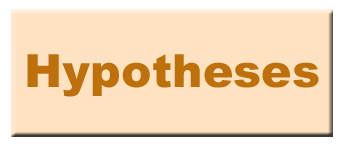Discussion
Our first hypothesis states DePaul students are more likely to buy or rent textbooks from online retailers than buy or rent from the campus bookstore. From our own personal experiences with purchasing expensive textbooks from the bookstore in the past and the growing popularity of online shopping and renting, we figure students will utilize online sources to buy their textbooks. Previous literature noted there has been an increasing trend in purchasing textbooks online and students will continue to use online sources such as Amazon, eBay, and Chegg to obtain their textbooks. Our results show that 52% of our participants preferred to buy textbooks online and additional 16% chose to rent from an online source. Our additional hypotheses and survey questions further investigate the reasons and perspectives toward buying or renting their textbooks.
Our second hypothesis states DePaul students decide to buy or rent textbooks online over the campus bookstore due to price differences. As previous research stated, textbooks are bookstores' highly profitable items and as a result, textbook prices are at steady incline and will continue to soar. From our survey results, over 80% of our sample participants indicated that DePaul chose to buy or rent online in comparison to store bought purchases. As students ourselves, we often observe the high prices associated with textbooks at the DePaul bookstore from our own personal textbook shopping experiences. We believe students would rather seek other alternatives in order to escape expensive textbook bills, especially if students can find the same textbooks at a significantly cheaper price online. For instance, in the freeform response section one participant revealed, 'It really comes down to price; I'm always looking out for the best deals. In my experience, I've found that Amazon tends to have the lowest prices.' From our survey, 50% of our sample said that they purchase 4-6 textbooks per quarter, which totals to about 12-18 textbooks per year. Purchasing multiple books a quarter can add up to a costly and undesired bill for students influencing students to escape bookstore prices by renting or shopping online.
Additionally, previous literature in our background section shown that students select online shopping because the process tends to be more convenient and hassle- free. In regards to renting textbooks online, one participant disclosed, 'It's very simple, cheaper, and more convenient. As soon as I am done with them, I ship them back for free and receive more money back than I would from the bookstore.' After analyzing our results, we found that 'convenient' and 'cheap' were the most common responses for the reasons why students obtain their textbooks the method they choose.
Our third hypothesis tests lowerclassmen will be more likely to buy or rent textbooks from the campus bookstore than upperclassmen. Underclassmen are experiencing a new milestone in their lives - adjusting to college life, establishing new friendships, and adapting to new academic and personal responsibilities, whereas upperclassmen already survived two years of college and gained a greater understanding of the college culture. Because lowerclassmen do not have the same amount of knowledge about various campus and academic resources entering the university as upperclassmen, lowerclassmen tend to follow the norm without thinking about the alternatives. We believed that lowerclassmen would be more likely to purchase or rent textbooks from the DePaul bookstore because lowerclassmen are only familiar with the DePaul and they are unaware of the other resources to obtain textbooks. In contrast, survey results showed no significant difference between upper and lower classmen and their rent and buy purchases from the DePaul bookstores. This could be because our sample was composed of mostly upperclassmen students. Out of the 34 lower classmen participants, 7 indicated they buy/rent textbooks from the bookstore and 27 respondents chose another option to buy/rent textbooks in comparison a total of 60 upperclassmen participants.
Our last hypothesis states DePaul students are overall more likely to rent their textbooks. We believe that because the bookstore does not offered a great percentage on selling back books regardless of original price spent or quite frankly, may not buy back certain books because of low demands, these two factors can persuade students not to rent or purchase textbooks from the bookstore. Therefore, students would be more inclined to rent books so students would not have to deal with the hassle of not getting anything back from their costly contribution. Our results shown students prefer to purchase their textbooks rather than renting them. Results show that 77% of our sample was female and this may be one factor influencing the outcome of our fourth hypothesis. According to previous research, males are more knowledgeable and demonstrate higher usages of technology and internet sources in comparison to females. Because females are less engaged with technology and internet sources, buying or renting textbooks may be a second or third alternative for buying or renting books, while online options may be a first choice for male students.











